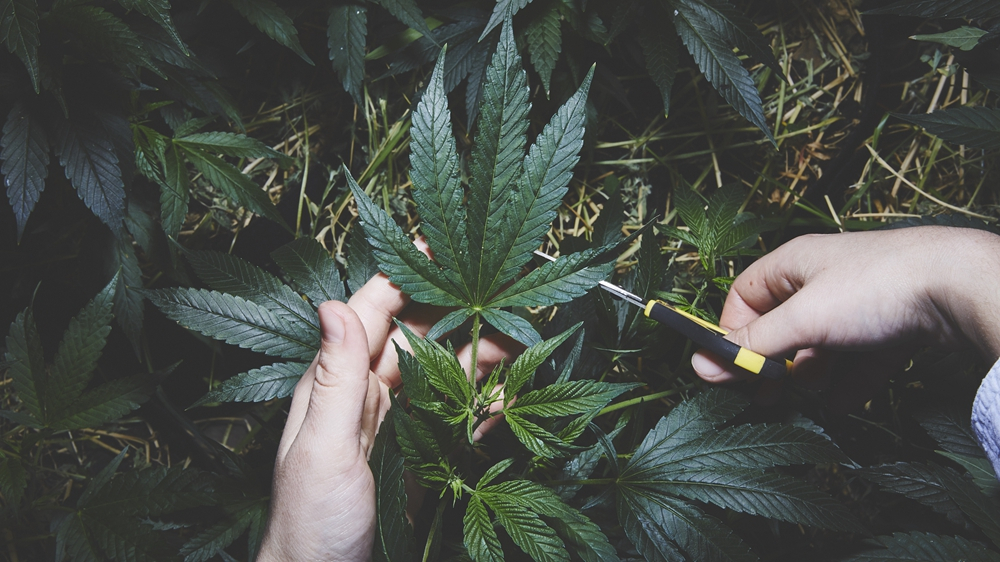Thailand approved marijuana for medical use and research on Tuesday, however recreational use of the drug remains illegal.
The National Legislative Assembly's 166 members in Thailand voted in favor of the change before the New Year's holidays. 13 members abstained from the vote but nobody voted against.
This makes Thailand the first country in Southeast Asia to allow the use of medical marijuana.
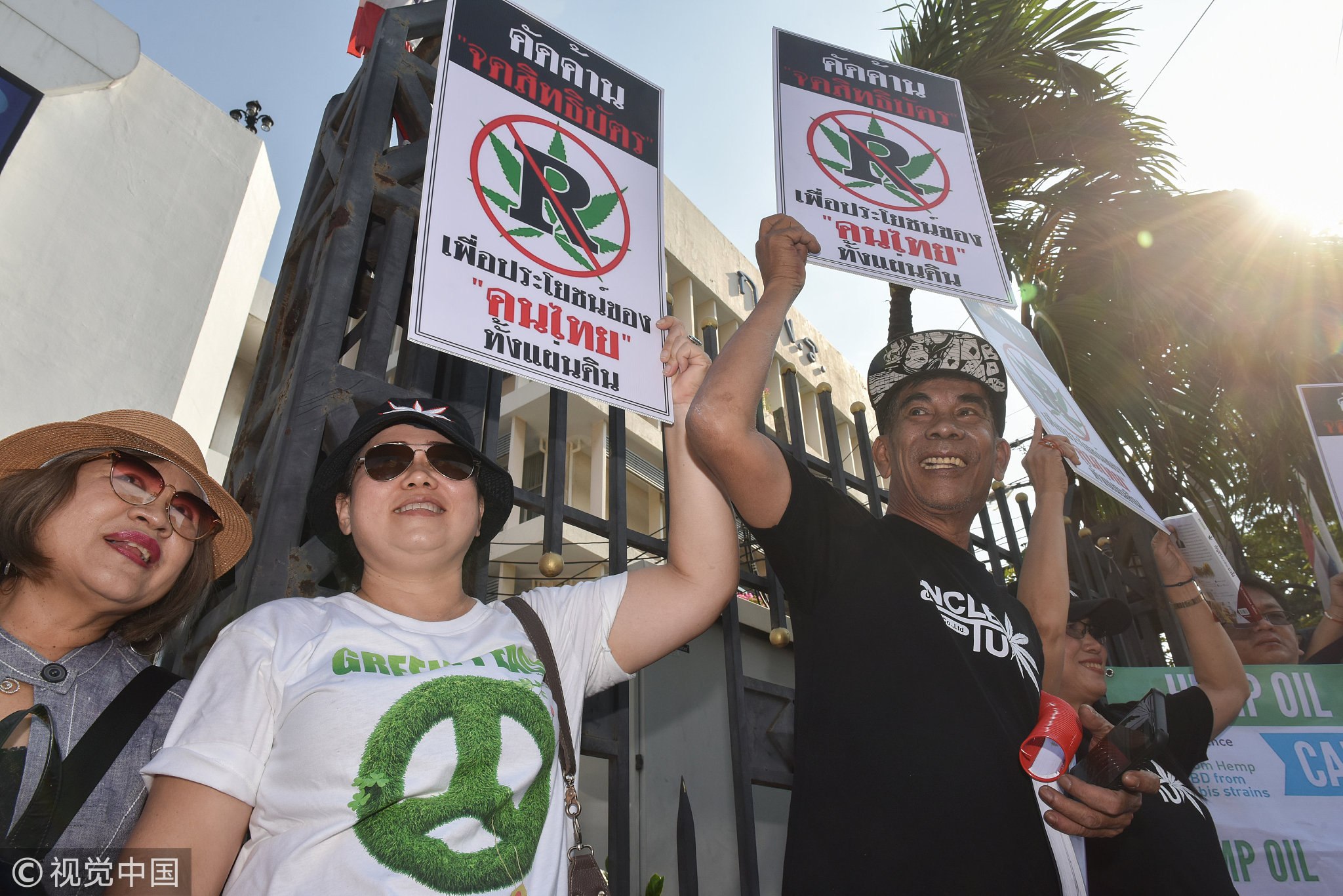
Thai activists,who use marijuana therapy, hold placards as they gather during a campaign for the legalization of medical marijuana near Government House in Bangkok, Thailand, November 20, 2018. /VCG Photo
Thai activists,who use marijuana therapy, hold placards as they gather during a campaign for the legalization of medical marijuana near Government House in Bangkok, Thailand, November 20, 2018. /VCG Photo
"This is a New Year's gift from the National Legislative Assembly to the government and the Thai people," said Somchai Sawangkarn, chairman of the drafting committee, in a televised parliamentary session.
The amendment will become law when it is published in the government gazette, the Bangkok Post reported.
Battle against marijuana
Thailand has the largest prison population in Southeast Asia, and the sixth-largest in the world. Inmates convicted of minor drug offenses make up the largest percentage of that population, according to VICE News.
In the past, Thai police would burn marijuana, and other drugs, confiscated during busts in a massive bonfire each year.
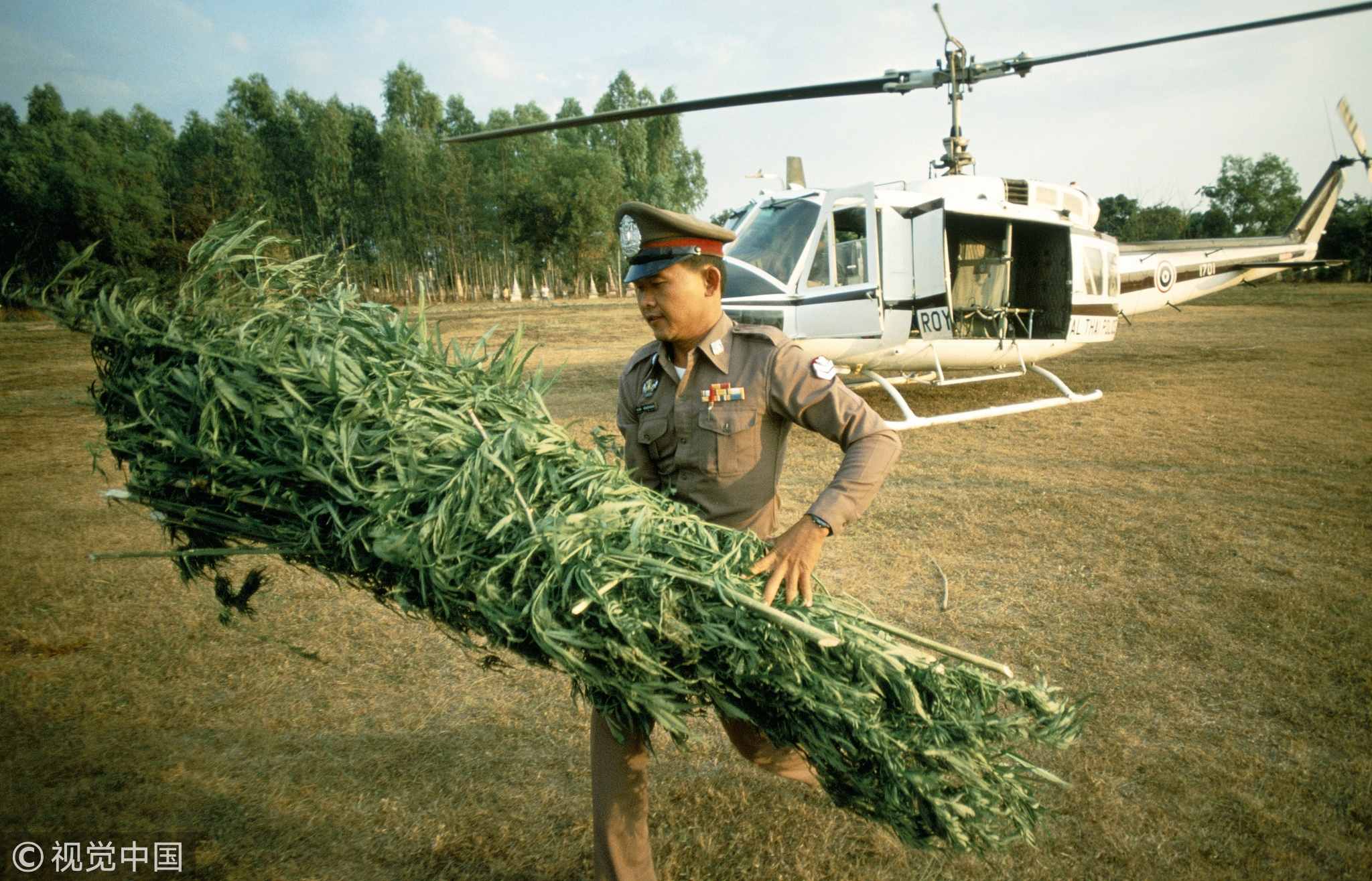
A Thai policeman confiscates marijuana plants in Thailand, January 1, 1990. / VCG Photo
A Thai policeman confiscates marijuana plants in Thailand, January 1, 1990. / VCG Photo
Only 15 years ago, the country embarked on its own Duterte-style war on drugs that left hundreds of alleged drug dealers dead, including several weed dealers.
But in September, police handed over 100 kilograms of marijuana to medical researchers to use in their studies instead.
Controversy with legalization
In Thailand, the main controversy with legalization involved patent requests by foreign firms that could allow them to dominate the market, making it harder for Thai patients to access medicines and for Thai researchers to access marijuana extracts.
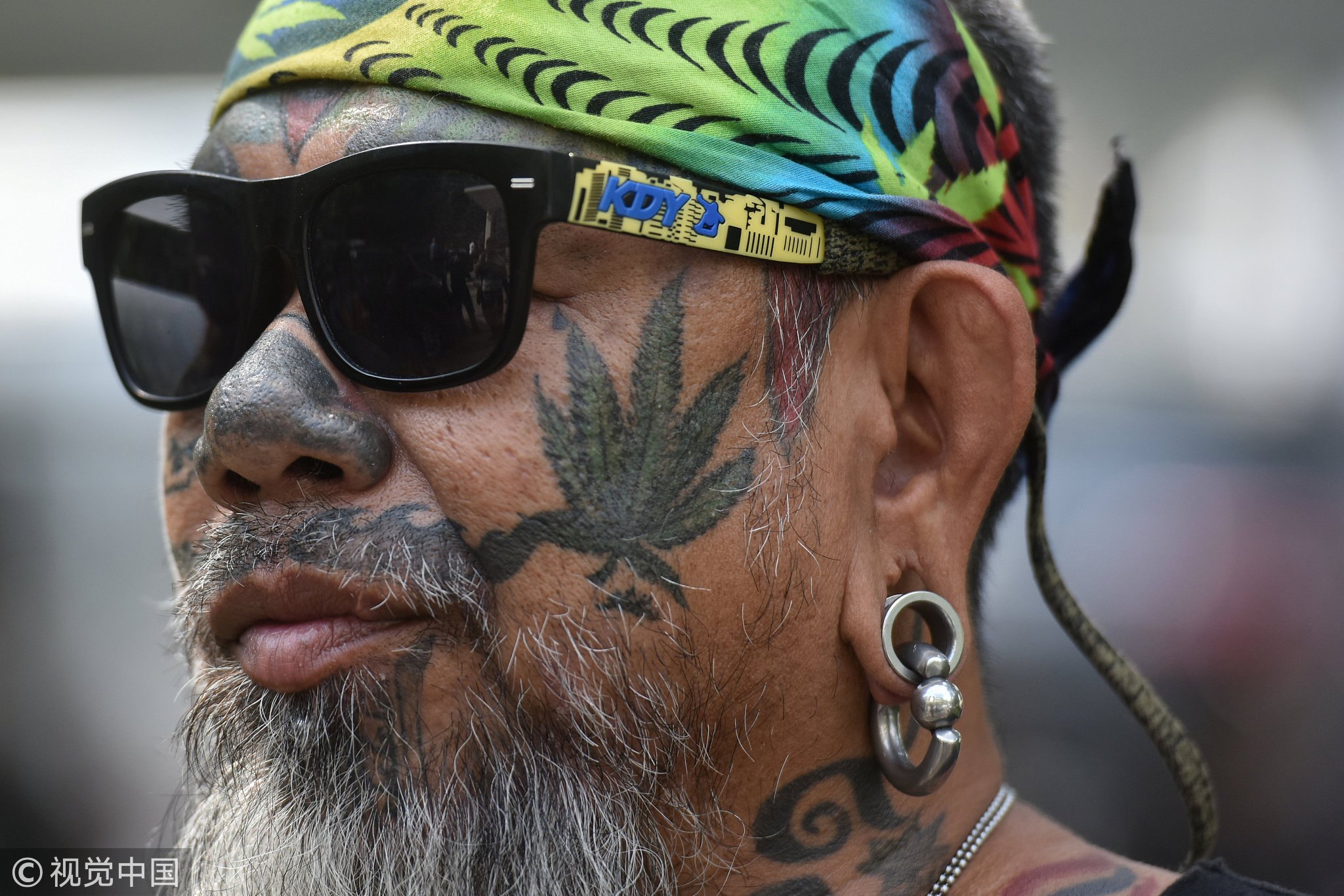
A Thai activist with a marijuana tattoo on his face gathers with others during a campaign for the legalization of medical marijuana near Government House in Bangkok, Thailand, November 20, 2018. / VCG Photo
A Thai activist with a marijuana tattoo on his face gathers with others during a campaign for the legalization of medical marijuana near Government House in Bangkok, Thailand, November 20, 2018. / VCG Photo
"We're going to demand that the government revoke all these requests before the law takes effect," said Panthep Puapongpan, dean of the Rangsit Institute of Integrative Medicine and Anti-Aging.
Some Thai advocates hope that Tuesday's approval will pave the way for the legalization for the drug's recreational use.
Worldwide changes of marijuana
Across the world, countries have been revisiting their marijuana laws.
Canada and Uruguay are among those to have legalized it, including for recreational use.
The British government approved medical marijuana earlier this year, and it became available on November 1 from the National Health Service to patients with a prescription.

A couple holds a flag as they wait in line for the opening of Quebec Cannabis Society store, on the day Canada legalizes recreational marijuana in Montreal, October 17, 2018. / VCG Photo
A couple holds a flag as they wait in line for the opening of Quebec Cannabis Society store, on the day Canada legalizes recreational marijuana in Montreal, October 17, 2018. / VCG Photo
Medications derived from cannabis became legal in Germany last year. Medical marijuana is also legal in Australia and Ireland.
In the Unites States, medical marijuana is legal in 30 states, though the laws governing what's permitted vary from state to state, according to the U.S. National Conference of State Legislatures.
In China, both recreational and medical marijuana are illegal.
About medical marijuana
Conclusive or substantial evidence shows that it helps to treat chronic pain in adults, chemotherapy-induced nausea and vomiting, to improve patient-reported multiple sclerosis spasticity symptoms.
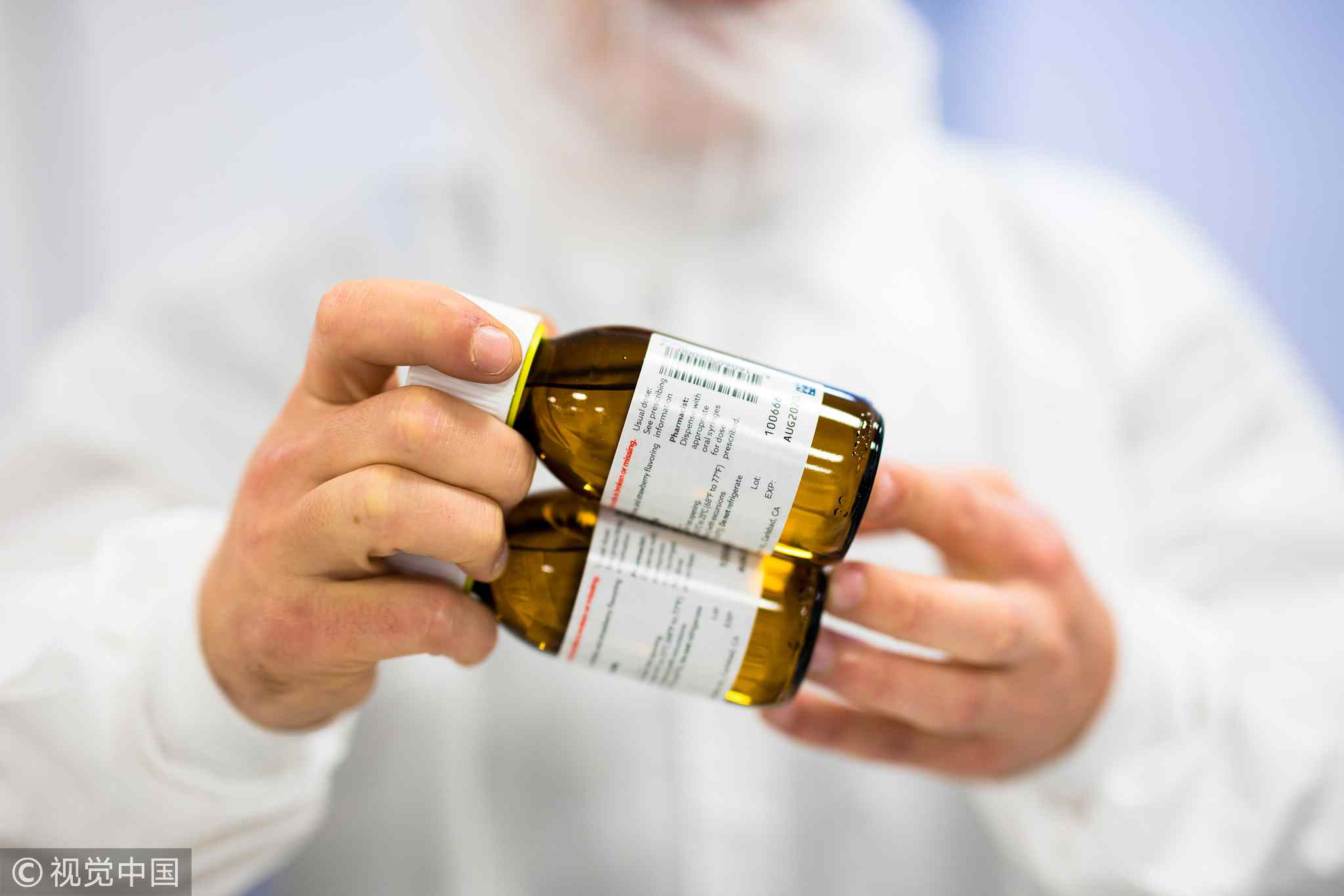
An employee holds bottles of Epidiolex, a cannabinoid-based medicine for childhood epilepsy disorders, at the GW Pharmaceuticals Plc facility in Sittingboune, October. 29, 2018. / VCG Photo
An employee holds bottles of Epidiolex, a cannabinoid-based medicine for childhood epilepsy disorders, at the GW Pharmaceuticals Plc facility in Sittingboune, October. 29, 2018. / VCG Photo
There are also moderate evidence showing that it helps to improve sleep in individuals with specific conditions including fibromyalgia and obstructive sleep apnoea syndrome.
And recent studies also have found that cannabidiol (CBD - an active ingredient in cannabis) can reduce seizures in individuals with rare childhood epilepsy disorders - Lennox-Gastaut syndrome and Dravet syndrome.
(With inputs from agencies)

